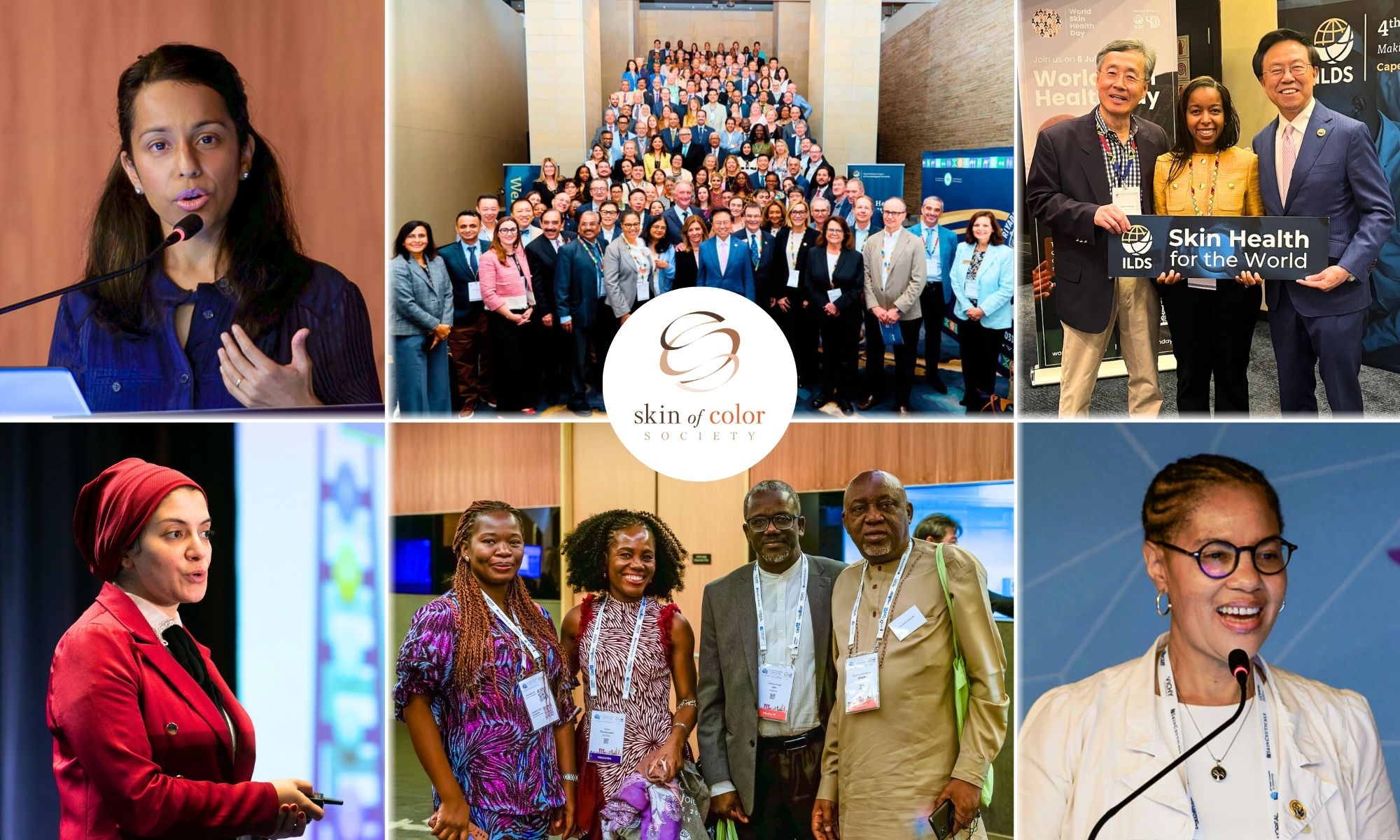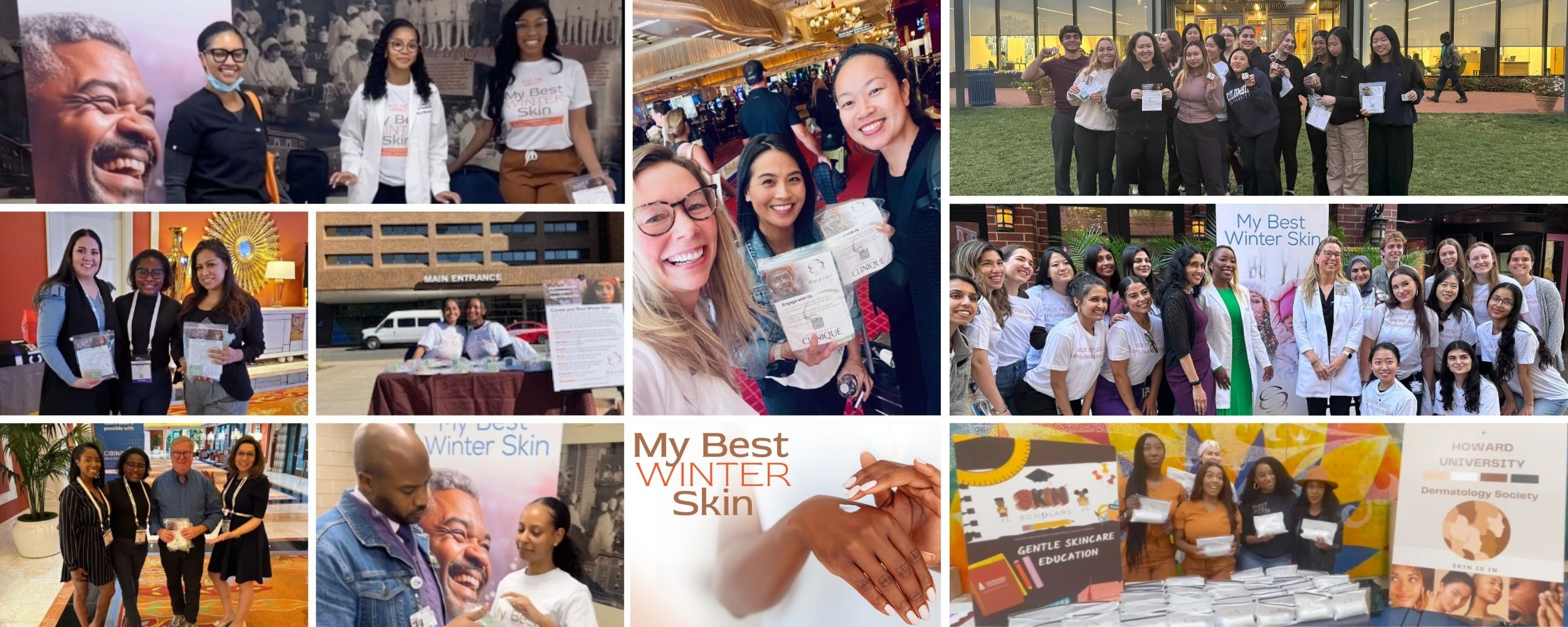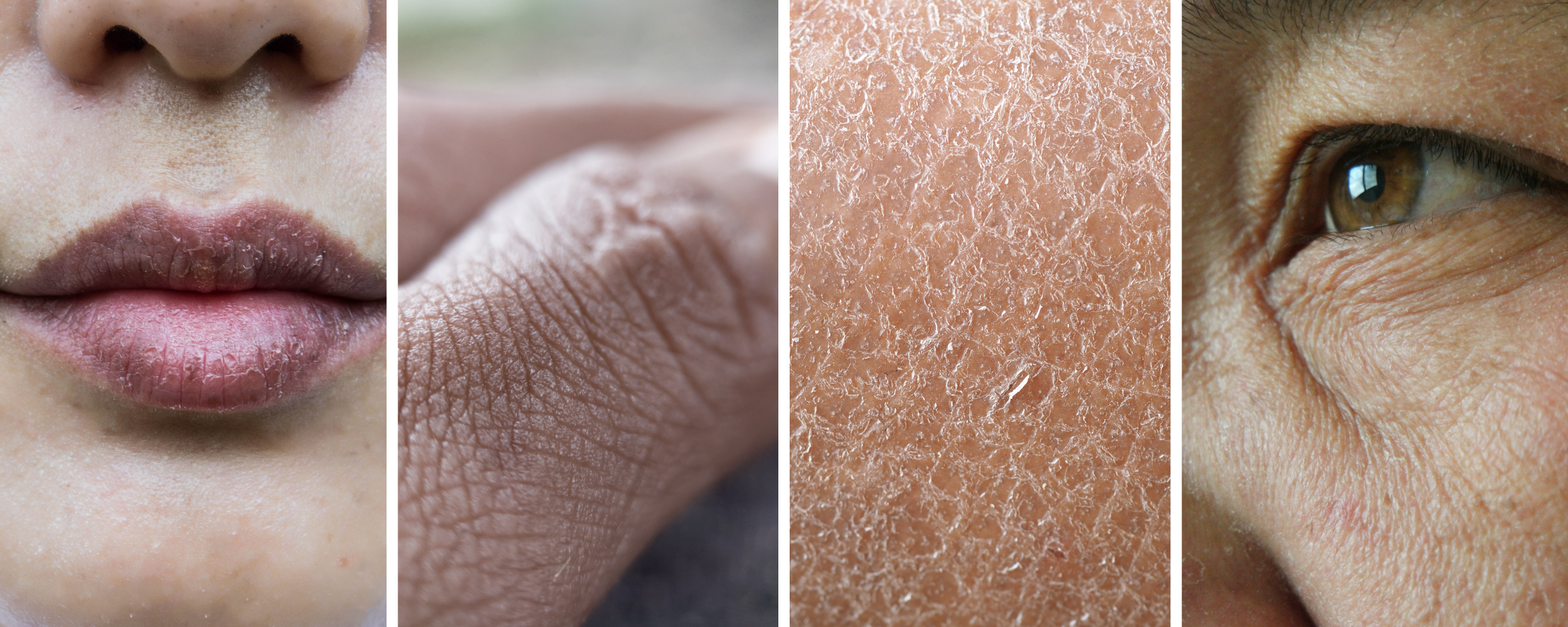
SOCS Clinical Investigator Training Committee Co-Chairs Drs. Leandra A. Barnes (left) and Tarannum Jaleel.
For this month’s Committee Corner, we are delighted to highlight the SOCS Clinical Investigator Training Committee, co-chaired by Drs. Leandra A. Barnes and Tarannum Jaleel. This important and innovative committee is engaged in fostering a more inclusive and diverse community of clinical researchers within dermatology.
Collaborating closely with the National Medical Association (NMA) Dermatology Section, the committee focuses on creating resources and mentorship opportunities to develop the skills of future dermatology investigators and offering support to physicians interested in skin of color dermatology, health equity, and excellence in patient care.
The committee oversees the Clinical Investigator Training Mentorship Program, as well as developing the curriculum and agenda for the in-person full-day training conducted on the Friday before the start of the Annual Convention and Scientific Assembly of the NMA.
Main Achievements
The Clinical Investigator Training Mentorship Program has made significant strides in developing new clinical investigators in dermatology at both academic institutions and community clinics, focusing on serving underserved populations.
Since its inception, the program has successfully trained two cohorts of board-certified dermatologists and is partway through training a third cohort, equipping them with the essential skills to initiate and maintain clinical research. This initiative has not only enhanced the career trajectories of participating mentees but has also expanded the network of dermatologists engaged in clinical trials. Consequently, it has promoted access to clinical trials for diverse populations. By addressing barriers such as knowledge gaps, lack of training, and trial selection challenges that new investigators face who want to make clinical trials accessible to their patient populations, the Clinical Investigator Training Mentorship Program program has fostered a supportive environment for physicians dedicated to serving underrepresented groups, paving the way for more inclusive clinical trials that better reflect the diverse patient populations they serve.
Additionally, this program has received positive feedback from participants who have expressed how the mentorship has significantly impacted their confidence and ability to contribute to clinical research.
According to Drs. Barnes and Jaleel, “We continue to seek new opportunities and partnerships to further enhance the impact of the Clinical Investigator Training Mentorship Program program, ensuring that dermatology research becomes even more inclusive and representative. As we move forward, we are committed to expanding our outreach and collaboration efforts, aiming to create a sustainable model that can be replicated in other specialties and institutions, thereby broadening the scope and impact of our mentorship program even further.”
Meet the Co-Chairs
Leandra A. Barnes, MD, FAAD is Instructor of Dermatology, Founding Director of the Stanford Medicine Skin of Color Program, and Co-Director of the Hidradenitis Suppurativa Specialty Clinic atStanford Medicine Department of Dermatology. She comments, “As a physician-scientist deeply committed to advancing health equity and expanding opportunities for early investigators, co-chairing the Clinical Investigator Training Mentorship Program Mentoring Program has been incredibly personal and fulfilling. I am inspired by the generosity of our mentors and industry sponsors, the growth of our mentees, and the community we are fostering with NMA Dermatology and the Skin of Color Society. I look forward to seeing the lasting impact we will make in dermatologic research and beyond.”
Tarannum Jaleel, MD, MHSc is Assistant Professor, Duke Department of Dermatology, and Director, Duke Hidradenitis Suppurativa Medical and Procedural Clinic. She shares, "Seeing this program evolve over the past 3 years to enhance our clinical trial training program has been very fulfilling for me as a co-chair. The networking opportunities, longitudinal mentorship opportunities, as well as industry stakeholder involvement from the start, set this program apart and is highly empowering. The dedication and collaboration of all involved have truly made a significant impact on our clinical research community. As we continue to progress, I am excited to see the future advancements and the lasting influence this program will have on the field of clinical research."
A Message from the Co-Chairs
The co-chairs jointly invite stakeholders across academia, private practice, and industry to join us in the mission to diversify clinical research.
They point out that “by investing in mentoring programs like the Clinical Investigator Training Mentorship Program, we can collectively dismantle barriers and create a more inclusive environment for investigators and participants. Together, we can build a future where clinical trials truly represent the diverse populations they aim to serve. Supporting training programs to empower individuals earlier in medical school education and residency is critical to have representative populations in trials. We hope we can continue to partner with experienced investigators, program trainees, and industry partners over the years to come to grow the community dedicated to this. By fostering a more inclusive research community, we can ensure that the findings and treatments generated from clinical trials are applicable and beneficial to everyone, ultimately leading to improved health outcomes for all. Our commitment to inclusivity is not just a goal but a necessary journey we must embark on together, striving for a future where every individual has equal access to the benefits of medical research and advancements.”














